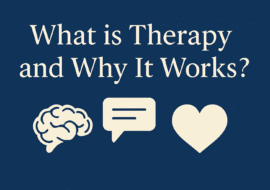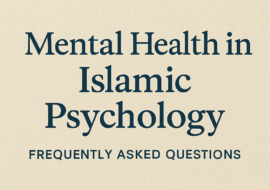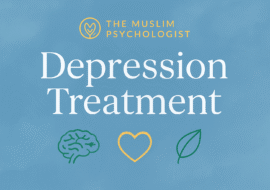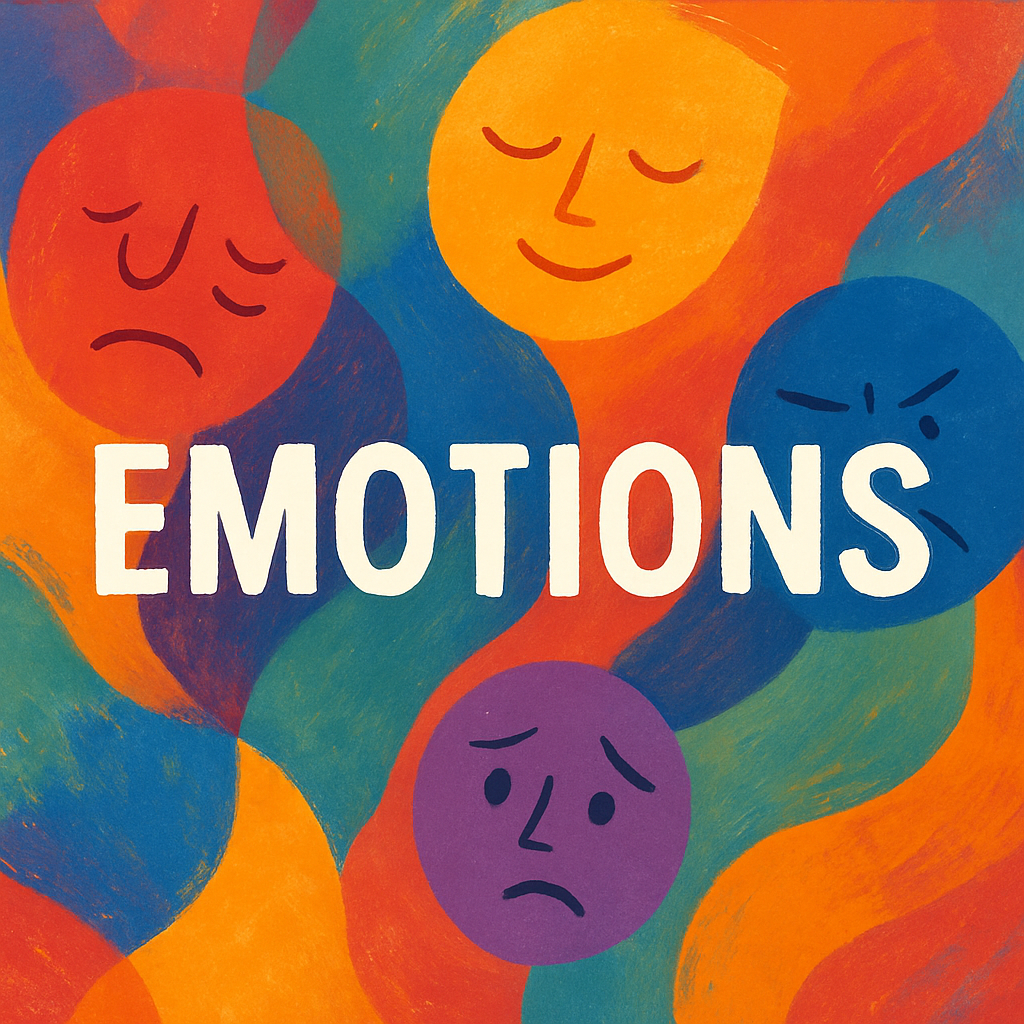
The Power of Negative Emotions: Why They’re Beneficial
Have you ever been told that anger, frustration, or jealousy are “bad” emotions?
Maybe you’ve tried to suppress them, hide them, or even feel ashamed for having them. You’re not alone. Most of us were taught—explicitly or implicitly—that only “positive” emotions are acceptable.
But here’s the truth: there’s no such thing as a wrong emotion. Every emotion you feel is valid. Even the ones that make you uncomfortable. Even the ones that feel heavy, messy, or inconvenient.
Your emotions aren’t obstacles to overcome.
They are messengers.
They are teachers.
They are signals from deep within you—calling your attention to something important.
When you learn to listen, you unlock a powerful path to healing, growth, and spiritual connection.
In this article, you’ll discover how emotions like guilt, shame, frustration, envy, and even boredom can become catalysts for transformation—when you stop fighting them and start learning from them.
Emotions are a natural part of the human experience. They are signals. These signals are often more powerful than our thoughts. They can influence how we perceive the world. They also affect how we interact with others. But how often have you heard someone say they’re feeling “bad” or “negative”? Or perhaps you’ve found yourself labeling certain emotions as “wrong” or “undesirable”? The truth is, there are no inherently “bad” emotions. Each emotion, no matter how uncomfortable, has a valuable purpose. Understanding this can help us develop a healthier relationship with our feelings and, in turn, improve our mental well-being.
Emotions Are Messengers
Every emotion is a messenger. It provides us with valuable information about our internal state. Emotions also inform us about the world around us. Emotions such as sadness, anger, fear, and even frustration are not negative forces. They should not be suppressed. Instead, they signal that something requires attention. For example:
Guilt: The Emotion That Invites You to Reclaim Integrity
Guilt is often viewed negatively, but it can be a powerful motivator for personal growth and change. When you feel guilty, it usually means you’ve acted in a way that conflicts with your values or has hurt someone. This emotion invites you to pause, reflect, and realign with what truly matters to you. Instead of suppressing guilt, you can respond to it as a signal for accountability and self-correction.
Guilt helps you:
- Take responsibility without self-condemnation
- Seek forgiveness and repair relationships
- Return to your moral compass

📚 Research: Tangney et al. (2007); Baumeister et al. (1994)
📖 Islamic view: Al-Ghazali emphasized nadam (remorse) as the essence of tawbah (repentance). Sincere guilt purifies the soul and restores one’s connection with Allah and with others.
Anger: The Emotion That Signals Boundaries Have Been Crossed
Anger often shows up when your boundaries, values, or needs have been violated. It’s a high-energy emotion that urges you to act, to protect yourself or others. While often labeled as destructive, anger can be channeled in healthy ways—through assertiveness, boundary-setting, and advocacy for justice. Suppressed anger can lead to resentment or emotional disconnection, but processed anger can bring clarity and courage.
Anger helps you:
- Recognize when you’ve been wronged or disrespected
- Reclaim your voice and assert your boundaries
- Mobilize energy toward constructive change
📚 Research: Averill (1982); Kassinove & Tafrate (2002); Tafrate et al. (2002)
📖 Islamic view: The Prophet Muhammad ﷺ said, “The strong is not the one who overcomes others by strength, but the one who controls himself while in anger” (Bukhari). Islamic teachings emphasize hilm (forbearance) and encourage transforming anger into forgiveness and dignity.
Jealousy: The Emotion That Guards What You Treasure
Jealousy often emerges when you fear losing something or someone valuable—love, attention, status. It differs from envy by involving a perceived threat to what’s already yours. Rather than shaming yourself for feeling jealous, you can explore what it reveals: your vulnerabilities, attachments, and unmet needs. In its balanced form, jealousy can prompt reflection and honest communication.
Jealousy reveals:
- What you value and fear losing
- Insecurities that may need healing
- The importance of open dialogue and trust in relationships
📚 Research: Salovey & Rodin (1988); Guerrero & Andersen (1998)
📖 Islamic view: In Islam, ghirah (protective jealousy) is natural and even commendable when expressed with justice and sincerity. However, it must be tempered with fairness and self-awareness to avoid destructive consequences (Ibn al-Qayyim).
Sadness: The Emotion That Opens the Door to Healing
Sadness is often seen as weakness, but it’s actually one of the most human emotions. It slows you down, softens your heart, and makes space for grief, tenderness, and meaning. Sadness invites introspection, processing of loss, and reaching out for comfort. Instead of resisting it, sitting with sadness allows healing to unfold naturally.
Sadness teaches you to:
- Honor your pain and loss without judgment
- Connect more deeply with yourself and others
- Embrace emotional vulnerability as a path to resilience
📚 Research: Bonanno (2004); Rottenberg (2005); Gross & John (2003)
📖 Islamic view: The Prophet ﷺ himself experienced deep sorrow (ḥuzn), such as during the Year of Sadness. The Qur’an acknowledges the grief of prophets (e.g., Yaqub ﷺ in Surah Yusuf). Islam encourages turning sadness into du’a, reflection, and trust in Allah’s wisdom.
Shame: The Emotion That Craves Compassion, Not Condemnation
Shame can feel crushing—it makes you believe that you are broken or unworthy. Yet when acknowledged gently, shame reveals where healing is needed. It doesn’t mean you are bad; it means you care about how you are seen. Shame urges you to reconnect with your humanity, not hide it.
Shame invites you to:
- Challenge internalized beliefs of unworthiness
- Embrace imperfection with self-compassion
- Build empathy for others facing similar struggles
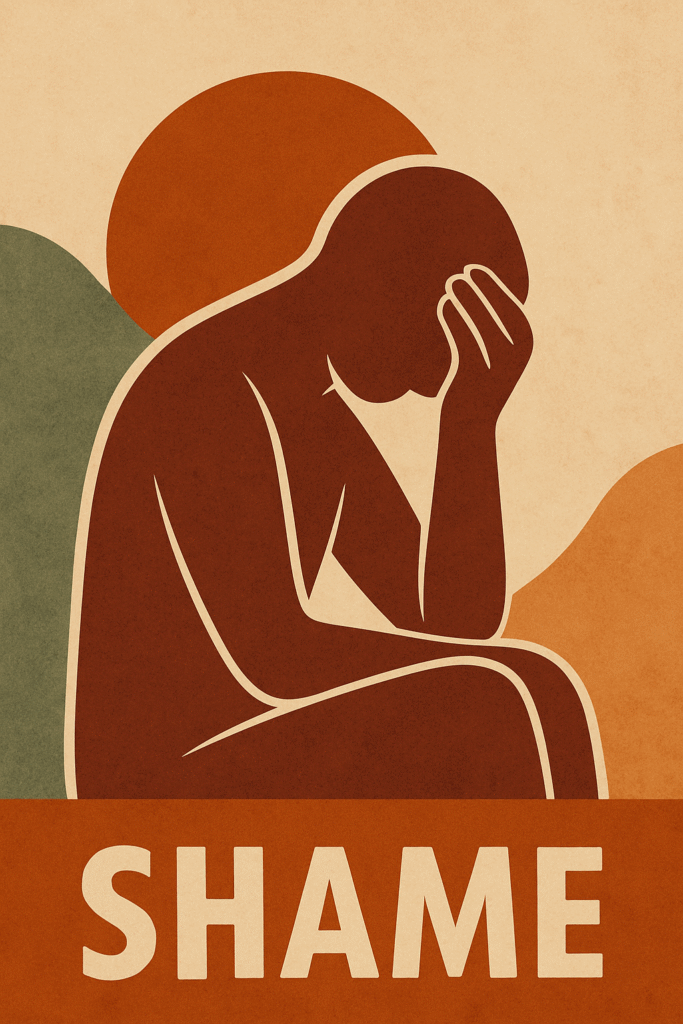
📚 Research: Schalkwijk et al. (2016); Tangney & Dearing (2002)
📖 Islamic view: Ibn al-Qayyim described haya’ (modesty) as a sacred emotion that shields the heart from sin. Unlike toxic shame, haya’ elevates character and draws the soul nearer to Allah.
Frustration: The Emotion That Fuels Change
Frustration often signals that something important is being blocked. You may feel stuck or powerless—but that tension can push you toward solutions and growth. Rather than viewing frustration as failure, you can see it as a motivator to adapt, assert your needs, and protect your boundaries.
Frustration helps you:
- Recognize unmet needs or blocked goals
- Adjust your approach or expectations
- Persist with creativity and resilience
📚 Research: Nezu & D’Zurilla (2013); Lazarus (1991)
📖 Islamic view: Al-Juwayni and others describe sabr (patience) as spiritual strength. Frustration is not weakness—it’s a path toward developing trust in Allah through effort and endurance.
Regret: The Emotion That Builds Wisdom
Regret arises when you look back and wish you had acted differently. While painful, it’s also clarifying. Regret holds up a mirror to your values and priorities. Instead of staying stuck in “what if,” you can use regret to make better choices going forward.
Regret teaches you to:
- Reflect without self-blame
- Learn from experience
- Make future decisions with greater wisdom
📚 Research: Roese & Summerville (2005); Zeelenberg & Pieters (2007)
📖 Islamic view: The Prophet Muhammad ﷺ said, “Regret is repentance” (Ibn Majah). Regret is not weakness—it’s the beginning of sincere return to Allah and real transformation.
Envy: The Emotion That Reveals Your Deepest Desires
Envy is uncomfortable because it highlights what we long for but don’t yet have. But envy doesn’t have to poison your thoughts. It can serve as a guide, showing you what matters to you. Envy becomes destructive only when ignored or denied.
Envy empowers you to:
- Discover aspirations beneath comparison
- Reclaim personal goals
- Channel discomfort into motivation
📚 Research: Smith & Kim (2007); Lange & Crusius (2015)
📖 Islamic view: Al-Ghazali drew a line between hasad (harmful envy) and ghibṭah (aspirational envy). Islam encourages the latter—wanting good for yourself without wishing harm for others.
Emotions Help Us Grow
While it’s easy to dismiss certain emotions as “bad,” they often present the very opportunities for growth we need. When we experience difficult emotions, we are forced to face situations that we may otherwise avoid. This confrontation can lead to greater emotional resilience, self-awareness, and wisdom.
For example, going through periods of sadness or grief allows us to process loss, reflect on what truly matters, and develop deeper empathy for others. Similarly, moments of fear or anxiety can motivate us to take action, overcome our doubts, and grow stronger in the face of adversity.
By allowing ourselves to experience and process our emotions rather than pushing them away, we can unlock deeper insights about ourselves and the world.
Emotions Are Part of Our Spiritual Journey
For those of us who follow spiritual or religious practices, emotions are often seen as part of our divine journey. In Islam, for instance, emotions are viewed as natural, human experiences that can lead to growth and strengthen our relationship with God. The Prophet Muhammad (PBUH) said, “The strong person is not the one who can overpower others, but the one who controls themselves in moments of anger.” This teaches us that emotions, especially anger, are not inherently negative, but can be tools for spiritual growth when we learn to manage them with patience and compassion.
Acknowledging that emotions like fear, sadness, or anger are normal and even beneficial allows us to embrace them as part of our human experience and spiritual path.
Conclusion While we often label certain emotions as “negative,” each one has a purpose and contributes to our growth in different ways. Rather than avoiding or suppressing emotions like guilt, frustration, or envy, we can learn to embrace them as valuable signals that guide us toward self-improvement and a deeper understanding of our needs and desires. Every emotion, no matter how uncomfortable, is an opportunity to learn more about ourselves, strengthen our resilience, and cultivate a more balanced and authentic life.
Conclusion: Let Your Emotions Guide You Home
Every emotion you feel carries a message—and a chance to know yourself more deeply. Rather than labeling your inner world as good or bad, right or wrong, begin to ask: What is this emotion trying to teach me? In doing so, you shift from resistance to relationship—with yourself, others, and your Creator.
Islamic psychology teaches that emotions are not enemies to be conquered but signs from the heart (qalb) that guide us toward balance, humility, and surrender. From the guilt that brings repentance, to the boredom that reignites purpose, your emotions are invitations to grow—not in spite of them, but through them.
If you feel that this article resonated with you or offered some comfort, and you’re seeking guidance or support on your journey, I’d be honored to walk alongside you.
📍 The Muslim Psychologist – Mental Health Services
🧠 Diana Asandei, Licensed Clinical Psychologist, M.A. in Clinical Psychology and Psychotherapy
📧 themuslimpsychologist09@gmail.com
🌍 Online sessions available in English or Romanian.
You don’t have to do this alone—reach out when you’re ready. I’m here for you.

